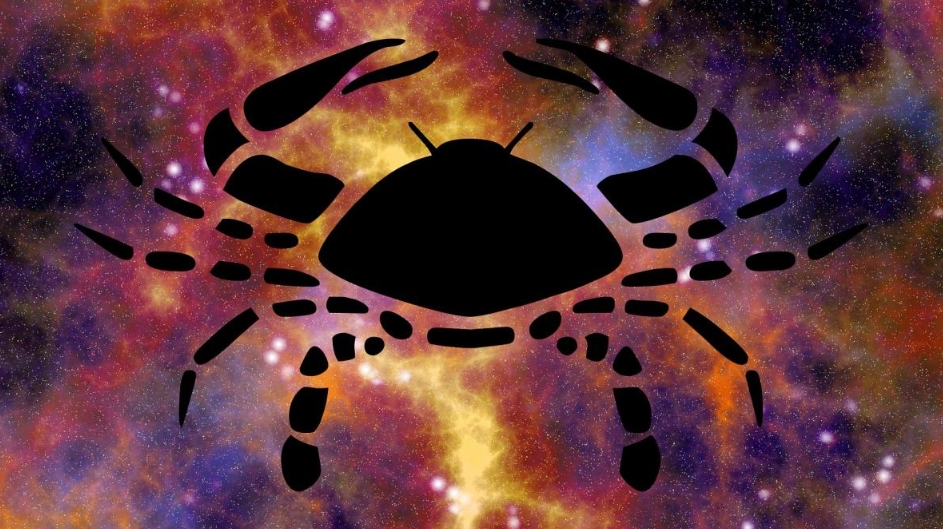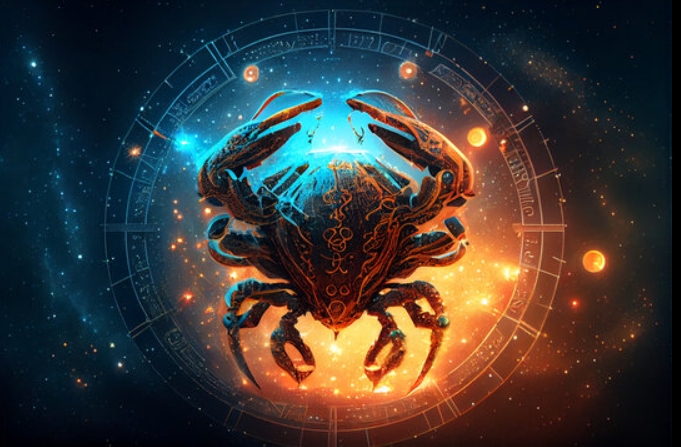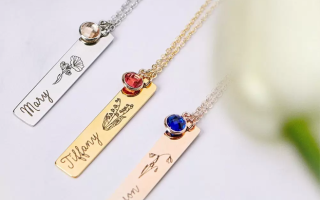The ancient art of astrology has captivated the human imagination for centuries, offering insights into our personalities, behaviors, and destinies through the positions of celestial bodies at the time of our birth.
Among the twelve zodiac signs, each with unique traits and characteristics, Cancer often carries a reputation that stands out.
It is often referred to as the “most dangerous” zodiac sign, not because of any malevolent intent or supernatural powers, but rather due to the intriguing combination of traits and emotions associated with those born under this sign.
In this exploration, we will delve into the mystique surrounding Cancer and unravel the factors that contribute to its enigmatic reputation, ultimately shedding light on why it is often considered the most complex and potentially “dangerous” of all zodiac signs.
Historical and Cultural Representations
Before delving into the complexities of Cancer as the “most dangerous” zodiac sign, it is essential to understand how this sign has been portrayed in ancient myths and legends and the diverse cultural interpretations of the crab symbol across different civilizations.
These historical and cultural representations provide valuable insights into the origins of Cancer’s charisma and its significance in various societies throughout history.
The Greek Myth of Hercules and the Hydra
In Greek mythology, the constellation of Cancer is often associated with the second of Hercules’ twelve labors.
Hercules had to battle the Hydra, a many-headed water serpent. While Hercules fought the creature, the goddess Hera, who despised him, sent a giant crab (Cancer) to distract him.
Although the crab’s efforts were futile, Hercules, the hero, eventually crushed the crab and, as a reward for its bravery, Hera placed it among the stars in the constellation Cancer.
The Epic of Gilgamesh
In ancient Mesopotamian mythology, Cancer was associated with the story of the goddess Ishtar, who sent the Bull of Heaven to punish the hero Gilgamesh.
In this myth, Ishtar threatened to unleash the Bull, but Gilgamesh and his companion Enkidu defeated it when it appeared.
The constellation Cancer was said to represent the Bull of Heaven, symbolizing the epic struggle between gods and mortals.
Cultural Interpretations of the Crab Symbol
In ancient myths and legends, cancer has been portrayed as a symbol of challenges and perseverance.
Its representation varies across different cultures, each imbuing the crab with unique meanings and interpretations that reflect their values and beliefs.
- Chinese Astrology: In Chinese astrology, the crab is not a zodiac sign but associated with the Cancer sign in Western astrology. The Chinese Zodiac consists of twelve animals, and the nearest equivalent to Cancer is the Rabbit.
- Native American and Indigenous Cultures: In various Native American and indigenous cultures, crabs and other crustaceans hold significance in their folklore and traditions.
- Astrology in Different Cultures: While the Western zodiac, which includes Cancer as one of its signs, is widely recognized and followed, other cultures have their astrological systems with different animal and symbol associations.
- Art and Symbolism: Beyond astrology, crabs have appeared in art and symbolism across cultures. They often represent cycles, protection, and the need to shed old layers or defenses to grow.
Understanding Cancer’s Emotional Depth
Cancer, the fourth sign of the zodiac, is often celebrated for its deep emotional nature.
Those born under this sign are known for their profound sensitivity, empathy, and innate ability to connect with their own emotions and the feelings of others.
This emotional depth can manifest in various ways, serving as both a strength and a vulnerability.
Strength:
- Empathy and Compassion: Cancers possess a remarkable capacity for empathy, making them compassionate and nurturing individuals. They are often the first to lend a caring ear or offer support to those in need, creating strong bonds with friends and loved ones.
- Intuition: Cancer’s heightened emotional awareness is closely linked to their intuition. They can often sense the unspoken feelings of those around them, which allows them to provide comfort and guidance in times of emotional turmoil.
- Creativity: Many Cancers channel their emotions into creative outlets such as art, music, or writing. Their emotional depth fuels their artistic expression, resulting in profound and moving works of art.
Vulnerability:
- Overwhelm: The depth of their emotions can sometimes overwhelm Cancers. They may find themselves easily hurt or prone to mood swings when they struggle to manage their intense feelings.
- Difficulty Letting Go: Cancers can hold onto grudges or past hurts for extended periods, making moving on from emotional wounds challenging.
- Fear of Rejection: Their sensitivity makes Cancers cautious about opening up to new people or situations. They may fear rejection or abandonment, making them guarded in their interactions.
The “Danger” of Intense Emotions
While the deep emotional nature of Cancer is undoubtedly a valuable trait, it can also pose challenges and potential “dangers” in interpersonal relationships.
Understanding how strong emotions can lead to misunderstandings or conflicts is essential in navigating these waters.
1. Misunderstandings
Intense emotions, when not communicated effectively, can lead to misunderstandings. Cancer individuals may assume that others can naturally empathize with their feelings, but this isn’t always the case.
When their emotional cues are not understood or misinterpreted, it can lead to confusion and frustration for both parties involved.
2. Overreactions
Cancer’s emotional depth can sometimes lead to overreactions in situations that may not warrant such intense responses.
Their sensitivity may cause them to take things personally or become deeply affected by minor incidents, which can create unnecessary tension.
3. Emotional Vulnerability
Cancers’ strong emotions can make them emotionally vulnerable. They may fear rejection or abandonment, which can lead to defensive behaviors or emotional withdrawal when they perceive a threat to their emotional well-being.
The Challenge of Navigating Relationships When Feelings Run Deep
Navigating relationships when feelings run deep is a unique challenge that Cancer individuals often face. This challenge arises from their emotions’ intensity and desire for deep, meaningful connections.
1. Fear of Being Hurt
Cancers may fear being hurt or rejected due to their emotional investment in relationships. This fear can lead to hesitancy in forming new connections or a reluctance to open up fully, which can hinder the development of healthy relationships.
2. Communication
Effective communication is essential in any relationship but can be particularly challenging for Cancers. They may struggle to articulate their emotions or needs, leading to misunderstandings with their partners or loved ones.
3. Balancing Independence and Attachment
Cancers often value their independence but also strongly attach to their loved ones. Balancing these two aspects of their personality can be tricky, as they may fear losing themselves in their relationships while still desiring deep emotional connections.
4. Nurturing Tendencies
Cancer’s nurturing tendencies can sometimes lead to one-sided relationships where they give more than they receive. They may need to learn how to set boundaries and ensure that their own emotional needs are met.

The Protective Crab Shell
The symbolism of the crab’s hard shell and soft interior serves as a profound representation of the Cancer personality.
This symbolism is not only associated with their zodiac sign but also reflects their emotional nature and how they navigate the world.
1. Emotional Armor
Much like the crab’s hard exoskeleton, Cancers often develop emotional armor to protect themselves from potential hurts or emotional vulnerability. This armor can manifest as a guarded demeanor or a reluctance to open up fully to others.
2. Vulnerable Interior
Beneath their protective exterior, Cancers have a soft and vulnerable interior. They tend to be deeply sensitive individuals who experience emotions intensely. This inner vulnerability contrasts with the outer toughness they may display.
3. Self-Preservation
The crab’s shell is a form of self-preservation in the natural world, protecting from external threats. Similarly, Cancers use their emotional defenses as a means of self-preservation to shield themselves from emotional pain or rejection.
How Cancers May Retreat or Become Defensive When Hurt
When Cancers are hurt emotionally, they often retreat into their protective shell or become defensive. This reaction is a coping mechanism that helps them cope with perceived threats to their emotional well-being.
- Emotional Withdrawal: Cancers may withdraw from social interactions or emotionally distance themselves when they feel hurt or vulnerable. They retreat into their inner world, seeking solace and time to process their feelings.
- Defensive Reactions: When Cancers feel threatened or hurt, they may exhibit defensive reactions. This can include becoming passive-aggressive, using sarcasm as a defense mechanism, or lashing out in an attempt to protect themselves from further emotional pain.
- Difficulty in Expressing Hurt: While Cancers are highly in tune with their emotions, expressing their hurt can be challenging. They may find it difficult to articulate their feelings, leading to relationship misunderstandings.
- Time for Healing: Cancers often require time to heal emotionally. Much like a wounded crab needs time to mend its shell, Cancer individuals need space and patience to recover from emotional wounds.
Cancer’s Intuitive Nature
Cancer, as the fourth sign of the zodiac, is deeply influenced by the moon. This celestial connection significantly shapes the intuitive nature of those born under this sign, impacting their emotional depth and moods in profound ways.
1. The Moon’s Influence
The moon rules cancer, and this lunar connection imbues individuals with a heightened sensitivity to the ever-changing phases of this celestial body. The moon’s cyclical journey through the night sky mirrors the ebb and flow of emotions that Cancers experience.
2. Intuition
The moon’s influence on Cancer individuals often leads to strong intuitive abilities. They have an innate sense of empathy and can pick up on the unspoken emotions and needs of those around them.
This intuition makes them excellent listeners and supportive friends and partners.
3. Emotional Depth
Cancers’ intuitive nature is closely tied to their emotional depth. They are acutely aware of their feelings and the feelings of others, which allows them to navigate complex emotional landscapes with empathy and understanding.
This emotional depth can also manifest in their creative pursuits, as they draw inspiration from their intuitive insights.
4. Moods and Lunar Phases
The moon’s phases have a pronounced impact on Cancers’ moods and emotional states. Just as the moon waxes and wanes, so do their emotions.
During a full moon, they may feel more energized and emotionally expressive, while a new moon can bring introspection and a need for solitude.
5. Nurturing Instincts
Cancer’s intuitive nature extends to their caregiving instincts. They intuitively know how to nurture and provide emotional support to their loved ones.
This quality makes them dependable and cherished friends and family members.
6. Lunar Cycles and Decision-Making
Some Cancers may even use lunar cycles as a guide for decision-making. They may find that certain phases of the moon resonate more strongly with their intuition, helping them make choices that align with their emotional needs and desires.
Challenging Stereotypes
Misconceptions and stereotypes about zodiac signs can oversimplify and misrepresent the rich tapestry of personality traits and complexities that make up an individual. When it comes to the Cancer sign, several stereotypes persist, but it’s essential to address these and recognize the multifaceted nature of Cancer individuals.
- Overly Emotional: One common stereotype is that Cancers are excessively emotional and prone to frequent mood swings. While they are emotionally attuned, this doesn’t mean they are constantly overwhelmed by emotions. They often harness their emotional depth to be empathetic and supportive.
- Homebodies Only: Cancers are sometimes stereotyped as homebodies who are averse to adventure and change. While they value their homes and families, many Cancers enjoy exploring the world and can be quite adventurous when they feel secure.
- Overly Protective: Cancers are often depicted as overly protective to the point of smothering their loved ones. While they are indeed protective of those they care about, this quality stems from their deep love and concern, not an overbearing nature.
Comparing to Other Zodiac Signs
Comparing Cancer to other zodiac signs reveals its unique qualities. Cancer’s emotional depth and strong intuition set it apart, as the moon deeply influences it.
While it can be sensitive, Cancer individuals are also nurturing, empathetic, and fiercely loyal. Each sign has its distinct characteristics, and understanding the diverse traits of all signs enriches our appreciation of the complexity of human nature.
Conclusion
Astrology provides a lens through which we can explore the intricate tapestry of human personalities and behaviors.
We’ve examined the emotional depth and intuitive nature of Cancer, dispelling stereotypes to appreciate their nurturing, empathetic, and loyal qualities.
It’s essential to recognize that while astrology offers insights, individuals are a complex interplay of numerous factors, including their upbringing, experiences, and choices.
Each zodiac sign has its unique strengths and challenges, and embracing the richness of this diversity fosters a deeper understanding of the multifaceted nature of human beings.



